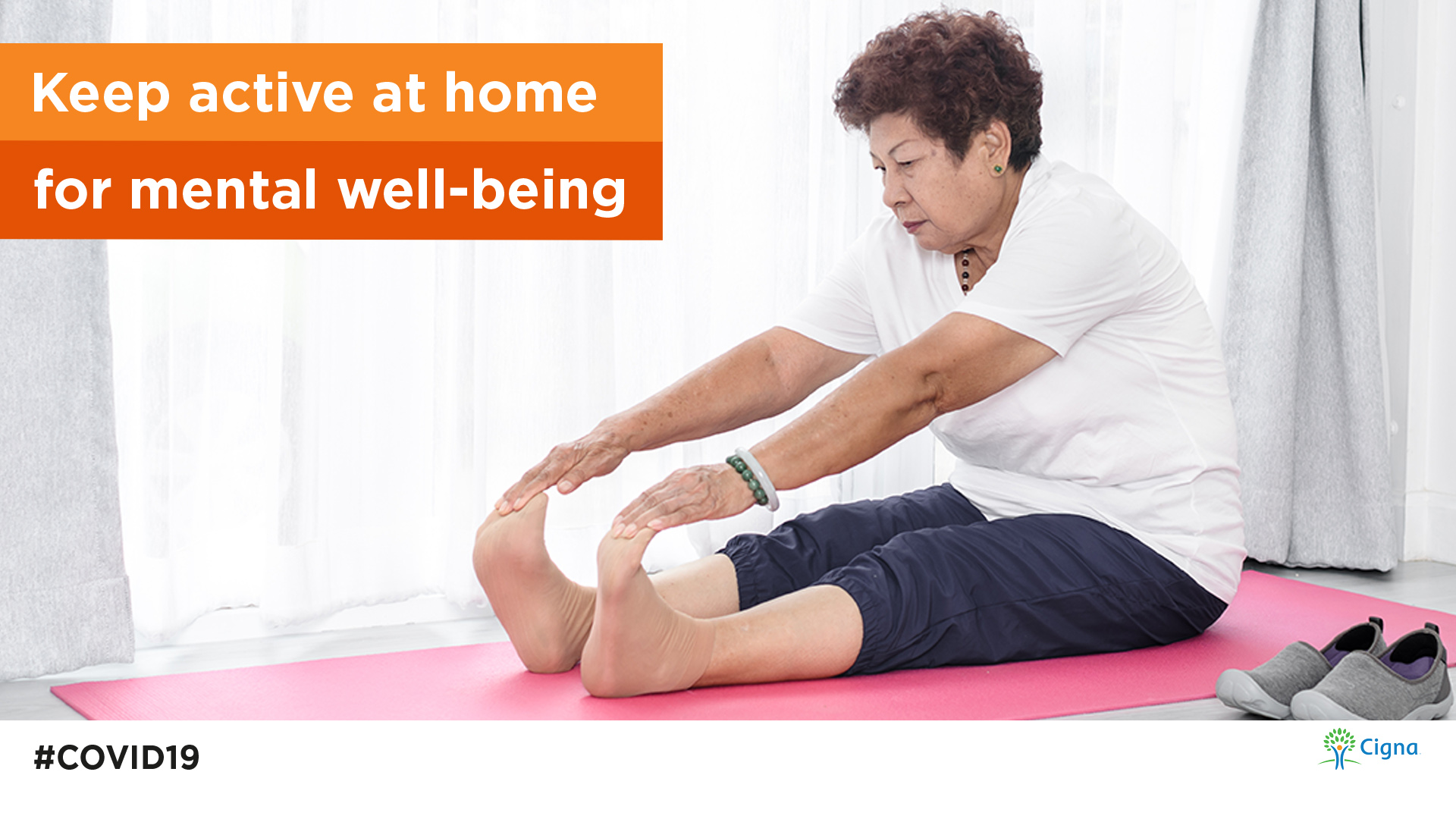As the UK enters its fifth week in lockdown, health service provider, Cigna Europe is urging Brits to remain as connected as possible to mitigate the major health issues social isolation can bring.
With more than nine million people1 regularly experiencing loneliness before the pandemic began, Dr Peter Mills and Dr Inge Schrever, doctors responsible for Cigna’s medical team, explain why the lack of social interaction and face to face contact with friends and loved ones can lead to a number of health issues, both physically and psychologically.
“COVID-19 is not only a life-threatening global health crisis – for many societies, it’s also becoming a major social crisis”, says Dr Mills. “The pandemic is unprecedented for the entire world, and is having a tremendous impact on healthcare professionals, businesses, and above all, individual people. We’re having to adjust to dealing with uncertainty, working differently, having to home school children, and trying to make sure that everybody stays healthy, safe, and is physically active”.
Dr Schrever added: “Feelings of loneliness can happen because of many factors, however in this current period of social isolation, it most frequently arises because of the forced separation from those we love, or due to the lack of social connections with other people. For this reason, it’s important to bear in mind that, despite the fact that it is a temporary phenomenon, solitude during the isolation period can, without question, significantly reduce our quality of life, negatively impacting our health and well-being, especially among the most vulnerable groups. Although the seriousness of the situation is undeniable, the good news is that, by applying certain guidelines, we can help curb the feeling of loneliness, so that our health and wellbeing are not affected during this period.”
To help people limit the impact of loneliness on their health and wellbeing during this time, Cigna Europe has outlined its top eight tips:
- Avoid negative thoughts. Constantly thinking about the negatives associated with isolation can worsen emotional distress. Accepting the situation is the first step in controlling our emotions and minimising the chances of feeling lonely.
2. Use technology to create emotional connections. Social relationships are essential for both our physical and mental health. Now it’s more important than ever to maintain regular contact with our social circle. This can be done via video calls, instant messaging or phone conversations. However, we must use these means in a healthy way – avoid placing COVID-19 at the centre of all conversations and try to talk about other things that will help distract us.
3. Practice meditation techniques. Mindfulness or conscious breathing can become great allies to calm anxiety and reduce stress. Breathing and meditation exercises can even help delay the ageing of our brain, helping the immune system react more strongly in the production of antibodies.
4. Maintain a certain level of physical activity. Physical exercise helps release endorphins in the brain, so if a certain level of activity is maintained during this period, the production levels of these hormones will remain high. There are many online resources available to help you exercise safely at home, whatever your fitness level.
5. Watch your diet – it’s essential to improve our mood. Since approximately 95% of serotonin – the hormone that works as a neurotransmitter and regulates sleep, appetite, and mood – is produced in the gastrointestinal tract, a balanced diet will be essential to cope with loneliness, as indicated by Harvard University2. In this way, eating more foods such as white meat, eggs, pulses, whole grains, nuts, seeds, bananas or dark chocolate, always within the limits of a balanced diet, will contribute to improving our mood.
6. Communicate regularly with colleagues. Adjusting to working from home can impact people’s emotional well-being as the work environment is often a place for social interaction. For this reason, it’s important to continue maintaining regular communication with colleagues, either by phone, email or videoconference.
7. Get some sun, if possible. Sunlight strengthens our immune system and improves our mood, as it stimulates the synthesis of vitamin D, a key substance for the central nervous system that helps control depressive symptoms. Sun exposure should last between 10 and 20 minutes a day.
8. Establish a routine with regular sleep schedules. It’s important to set schedules and maintain routines, especially regarding hours of sleep, eating and physical exercise. The longer we are busy, the lesser room for loneliness.
SOURCES
1 – A study by the British Red Cross
2 – Nutritional psychiatry: Your brain on food. University of Harvard









